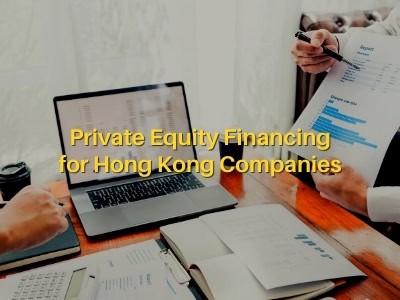This post is also available in:
![]() 繁體中文 (Chinese (Traditional))
繁體中文 (Chinese (Traditional)) ![]() 简体中文 (Chinese (Simplified))
简体中文 (Chinese (Simplified))
Know More About Private Equity Financing for Hong Kong Companies and How to Make the Best of It in This Highly Competitive Market
 Hong Kong might just be one of the hottest places for alternative investments, right now. Raking in at a second place in Asia for the amount of total capital from private equity investments and houses about 410 private equity firms to date. Given the immense size of the market, it would be wise to first study it before investing. Learn about private equity financing for Hong Kong companies and how to make the best of it in this highly competitive market.
Hong Kong might just be one of the hottest places for alternative investments, right now. Raking in at a second place in Asia for the amount of total capital from private equity investments and houses about 410 private equity firms to date. Given the immense size of the market, it would be wise to first study it before investing. Learn about private equity financing for Hong Kong companies and how to make the best of it in this highly competitive market.
What Is Private Equity Investment?
When you buy publicly listed shares from public companies, you become a partial owner of that company. The money you invest into a company contributes to its available capital which it would use for its development and in return, if the company flourish, so too will the amount of annual shareholder equity which you are entitled to. Private equity investment is much the same except the shares are sold by private companies and because of this, it has an advantage over public equity, namely autonomy given the company can develop in its own style without too much pressure from the public market. Private equity financing is often used for leveraged buyouts or as venture capitals.
Private Equity Financing Trends in Hong Kong
Much of private equity financing in Hong Kong is done for the purpose of fundraising, investment, transactions and exits. In terms of investment, much growth can be seen especially in sectors such as media, technology, healthcare and finance. Private equities are also transacted from shareholder to shareholder either for the purpose of buyouts or exits. Despite realistic pressures as a result of the COVID-19 pandemic, the private equity (pe) market in Hong Kong is expected to see some strong activity this year. In a recent development, the government has proposed tax concessions as a means of raising the level of competitiveness and stimulating the market, encouraging private equity investments. It does so by improving its Limited Partnership Funds mechanisms, rendering it more appealing to investors and thus far, the reception has been highly positive.
How Private Equity Is Regulated in Hong Kong
Private equity is mainly governed in accordance with the Limited Partnership Fund (LPF) Ordinance. The preferred vehicle for private equity investment is through Limited Partnership Funds and it has recently been revamped to encourage private equity growth. The bill itself contains information such as those pertaining to eligibility, key features, rights, liabilities, funds migration, registration procedures and terms related to confidentiality. You will need to get acquainted with this bill before all else. Here is some key information:
Limited Partnership Agreement.
In order to register for limited partnership funds, you must first obtain a limited partnership agreement (LPA). You will need to liaise with the company of interest in this matter.
General Partner (Private Equity Investor).
Investment is open to general partners of either Hong Kong nationality or otherwise, and the procedures differ between the two.
Regulatory.
There are no specific minimum capital requirements, no investment scope or strategy restrictions. The general partner will have unlimited liability though this is dependent on individual companies.
The Registrar.
The general partner when registering for a limited partnership will need to obtain the approval of the registrar by satisfying various conditions. The registrar is in charge of indexing names of limited partnership funds though this record is not accessible to the public. It is advised that you obtain the service of a Hong Kong Solicitor or other relevant legal assistance to help you in this endeavour.



